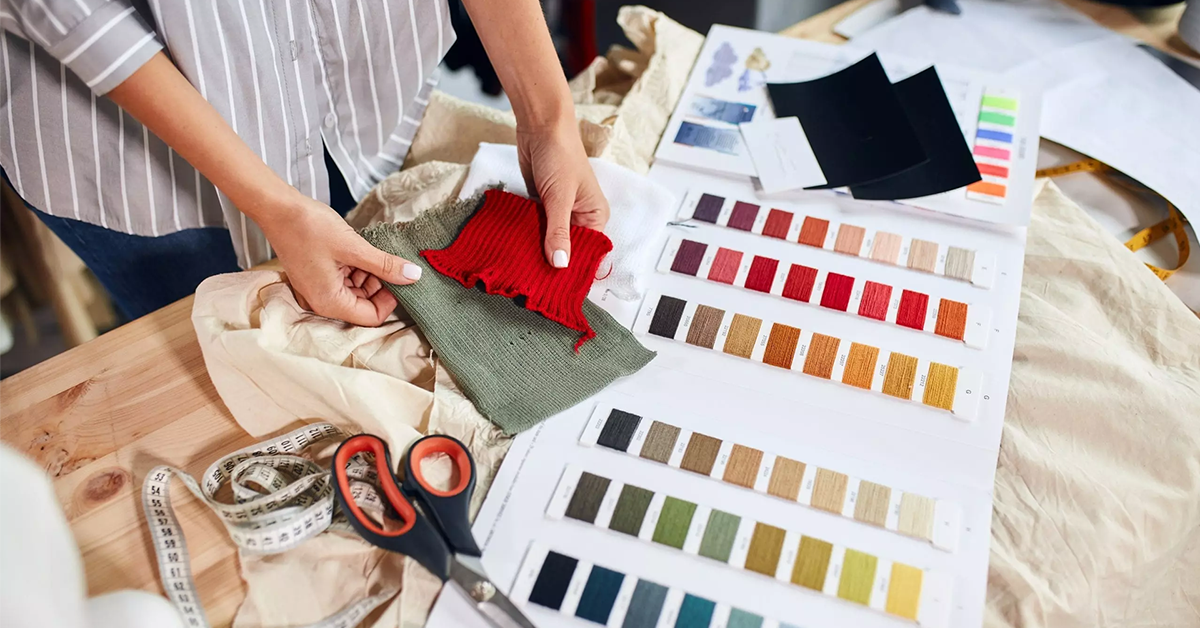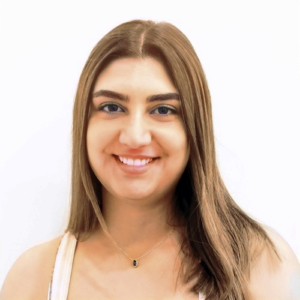
Berytech has selected 22 projects founded by 42 entrepreneurs to join the
Berytech is a partner of STAND Up! Sustainable Textile Action for Networking and Development of circular economy business ventures in the Mediterranean, an EU-funded project under the ENI CBC Med
The Selection Process
A total of 131 applications went through two rounds of selection by expert jury members from the Berytech team to identify the top 22 to join the program focusing on economic viability, environmental and social value, and a team that gathers strong entrepreneurial and professional experience.
The projects were identified under two working groups:
Group 1 includes innovators and entrepreneurs at the idea stage with at least a research study or early-stage projects in the textile, clothing, and fashion industries.
Group 2 includes SMEs or existing organizations working on new sustainable and existing projects inside their organization and willing to turn the projects to independent entities in the form of spin-off in the textile, clothing
Meet the 22 Projects
The selected 42 eco-innovative textile and fashion innovators will get the chance to build their capacities to secure investments and business opportunities and successfully take their project/business to market. The program will start with a capacity-building phase that will include training and workshops offered to the selected participants focusing on developing their Green Business Model, access to finance, access to market, and eco-design following the SwitchMed Methodology.
-
WASTE STUDIO specializes in creating unconventional urban bags, accessories, and furniture through prioritizing reused and recycled material in their designs. Since Kees
ed Dekkane (grocery bag) was born from a vision and a passion for the environment, WASTE STUDIO today owns and manages a collaborative designer-tailor workshop and s become an international bag and furniture manufacturer. -
Turn is a collective platform for developing sustainable solutions for the textile industry. They manage the donation of excess materials and stock from stakeholders to design schools and upcoming creators with the core value of creating a socially and environmentally conscious community of innovators, suppliers, and producers.
-
tiachriS is an interactive virtual fashion house that aims to sell online ethically made fashionable items to implement social change through an immersive virtual experience that will educate the consumer about sustainable living and spread awareness on the consequences of fast fashion. -
Refibery aims to recycle pre-consumer textile waste issued from the manufacturing process into certified textiles geared towards exports. -
Emergency Room is a sustainable ready-to-wear brand that challenges the fashion industry by placing environmentally friendly practices and the ethical treatment of garment workers at the core of their creative and production process. Championing an innovative business model centered on the production of unique one-of-a-kind artisanal pieces and reflected in engaged campaigns celebrating individuality.
-
LvPxAlSama is an upcycling and embroidery service that supports female artisans in Lebanon with regular and fair employment. The collaborative process is designed to educate the customer about the worth of fine hand-embroidery and provides the artisans with access to broader markets.
-
Goodkill is a fashion brand that aims to make an example and create a line of furniture, including cushions and sound isolation products from left-over raw textile materials in Lebanon, breaking the waste stream and creating truly sustainable products and brands. -
Something New tackles waste of textiles after a single use in the bridal industry by extending the life cycle of worn once wedding dresses and upcycling damaged ones through an online marketplace with a simple buy and sell model for affordable 2nd hand gowns in collaboration with local in-need seamstresses.
-
La Boutique is designing a solution to be able to shift from a traditional linear economy through keeping resources in use for as long as possible, recover and reuse materials by collecting and upcycling secondhand clothing as well as recycling fabrics. Their main purpose is to offer a zero-waste wearable piece of art.
-
MMMBYJOEL has created a hand-knitted plastic bag to offer a zero-waste piece of art, part of their positive impact campaign to clean up Beirut’s plastic bag problem.
-
Klovr is a peer-to-peer marketplace for circular fashion where buying and selling sustainable clothes has been made easy and reliable. -
Naked is working to provide 100% natural organic hemp fabric, made from the fiber waste of hemp plants, to be manufactured into a breathable, healthy, and eco-conscious clothing brand.
-
Bird Walk is a project for sustainable sneakers with a reforestation program. Designed and handmade in Lebanon, it tackles the waste and pollution problems in the footwear industry by using plant-based and recycled materials and responsible manufacturing processes.
-
The Butterfly Effect is an environmentally friendly textile innovation that addresses ocean and soil pollution from fashionable plastic and nylon, by upcycling leftover plant and flower waste and turning them into fabrics. This project will allow consumers to reduce their carbon footprint by replacing polluting fabrics with environmentally friendly, fully biodegradable, and meticulously designed clothes.
-
Sisters for the World have created a fashionable design of washable, affordable, leak-proof underwear made out of healthy, naturally absorbent, and eco-friendly material. The desired product is meant to replace expensive single-use and non-biodegradable menstrual pads, thereby helping end period poverty. The underwear can additionally be used by both men and women for all kinds of leaks, such as those caused by incontinence or postpartum bleeding.
-
MORPH provides a multifunctional product in one garment, which eliminates the need to produce several products separately as they are all combined in one, all while including the concept of upcycling, hence reducing fabric waste. The final product will guarantee an eco-friendly and space-saving product for customers and will help generate jobs for people willing to learn a skill and craftsmanship.
-
Recycling Household Textile and Cloth Waste is a project that consists of offering the consumers alternative, decent and affordable products such as mattresses, pet cushions, and thermal insulation materials, locally made by up-cycling and recycling cloth, textile, and fabric waste through an eco-friendly circular process.
-
Ferdinand is a clothing and accessory brand working in the respect of the environment and the people behind its making by using certified organic cotton and upcycling techniques.
-
The concept behind Bi Aman was inspired by the increased medical waste resulting from the COVID-19 pandemic and by the need to help offset hospital and medical care costs for those unable to afford it. The project aims to up-cycle the personal protective equipment of the medical front-liners and to turn them into a collection of useful sustainable fashion accessories such as practical bags.
-
Reuzed is a sustainable brand dedicated to transforming plastic into athleisure garments. The mission of the brand is to raise awareness about the danger of plastic and ways to reuse it. -
Lebamoz produces natural fibers and fabrics from banana pseudostems with a very low carbon footprint. It aims to partner up with Lebanese banana farmers and Loom operators to collect and process banana fibers from otherwise wasted/burnt trees. The fibers will be spun into yarn and then either sold as they are or woven into fabrics. -
Klakeesh is a project that recycles textile gadgets transforming them into unique, handmade, customizable gifts.
Launch of Phase 1: Capacity Building
The capacity building phase will run from April until the end of June 2021 and starts with providing green business model training, following the Switchmed methodology, with the trainers Maya Karkour, an Environmental Consultant, an Eco-Entrepreneur, and the Managing Director of EcoConsulting which she co-founded in 2003 in the UK, and established in Beirut, Lebanon in 2008; Lynda Achkouty, an international certified business coach, serving entrepreneurs, small business and startups to grow and reach higher revenue; and Nourhane Moukahal, part of the MakeSense team (Lebanese incubator of social innovations), supporting early-stage entrepreneurs through ideation workshops, innovations, coaching sessions, collective intelligence, and design-thinking methodologies.
The capacity building phase will continue with Maya Karkour and Aya Hoteit, a chemical engineer, solution-oriented entrepreneur and multifaceted designer, to provide access to market and market validation workshops, textile technology trends and market insights, and go-to-market strategies in the textile and fashion industry. Market Research techniques will be provided by Leen Taher, expert on research, benchmarking and data analysis at Heed. As for the last component of the capacity building, Nadia Moukaddem advisor at Eedama will be covering basic financials and access to finance sessions to the 42 entrepreneurs.
The entrepreneurs will then receive pitching sessions with the expert Andre Abi Awad in order to prepare them to pitch in front of a selection of jury members who will identify only 4 projects that will move to the second phase of the program ‘The Incubation Phase’ to receive tailored support from business and technical experts and mentors to further develop their projects.
“The STAND Up! Growing Innovation Program is truly a one of a kind program in Lebanon and the Mediterranean region supporting circular fashion and textile projects and businesses. The 42 entrepreneurs in Lebanon who have been selected to take part in this program will highly benefit from the support that the program will provide them. Their projects will be implementing circular solutions in fashion and textile while creating a second life to existing material, generating employment, reducing cost, and more benefits on an environmental and social aspect,” explains Tala Saleh, Senior Programs Officer at Berytech.
It’s important to note that the capacity-building phase will incorporate the innovative SwitchMed Green Entrepreneurship methodology to help the entrepreneurs better shape their business idea and come up with a robust green business model. This methodology has been developed under The SwitchMed initiative that aims at achieving a circular economy in the southern Mediterranean by changing the way goods and services are produced and consumed. To achieve this, the initiative provides a support methodology,
About the
The
The Project In Numbers
Activity period 41 months (July 2020 – December 2023)
Total budget: Euro 3.693.986,68
EU contribution: Euro 3.324.588,68 (90% of the total budget)
Main source of funding: European Union (ENI CBC Med Programme)









